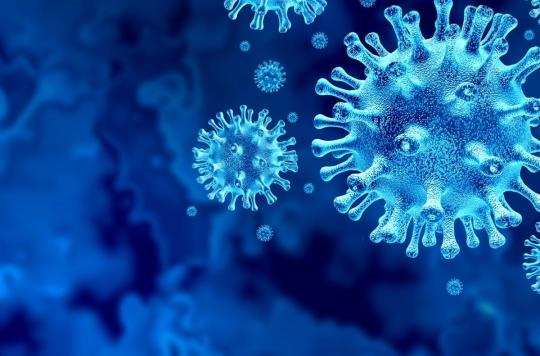One type of antibody, called anti-idiotype, can act like the antigen, present on the virus, and mislead the immune system.

- Antibodies are one of the fundamental elements of the immune response.
- Antigen is a subpart of a pathogen that generates the formation of antibodies.
- Vaccines contain weakened or neutralized forms of an antigen.
One in four people infected with Covid-19 suffer from persistent symptoms of the disease. They are affected by a form ofcovid long“, characterized by fatigue, chest pain, difficulty concentrating or even insomnia. At the same time, vaccinated people can experience side effects: allergic reactions, myocarditis or thrombosis. For researchers from the University of California, there is one thing in common between long Covid and vaccine reactions: our immune system. The New England Journal of Medicinethey explain that these two phenomena could be the result of an immune response.
Antibodies that self-destruct
The two main authors of the author, William J. Murphy and Dan L. Longo, relied on different works of immunology to carry out their research. They believe that the idiotypic network theory could partly explain these immune reactions. This hypothesis was formulated by Niels Jerne, who was awarded a Nobel Prize in 1984 for his work: there is a way for the immune system to regulate antibodies. When the immune system detects an antigen, either a compound of a virus or bacteria, it sends out antibodies to destroy it. Niels Jerne explains that these antibodies can later self-destruct. These secondary antibodies, called anti-idiotype antibodies, can act like the original antigen. “A fascinating aspect of anti-idiotype antibodies is that some of their structures can be a mirror image of the original antigen and act like it by binding to the same receptors as the viral antigen, explains William J. Murphy. This binding can potentially lead to adverse effects and pathology, especially in the long term..”
How to apply these assumptions to Covid-19?
When infected with Covid-19, the virus, SARS-CoV-2, enters the body, its spike protein, called spike, binds to the ACE2 receptor, to enter the cell. The immune system responds by producing protective antibodies that attach to the virus to block its effects and neutralize it. But these antibodies can also elicit the same immune responses with anti-idiotype antibodies. Over time, these anti-idiotypic responses can eliminate initial protective antibodies and potentially result in limited efficacy of antibody-based therapies. The authors believe that anti-idiotype antibodies are able to target ACE2 receptors. By blocking or triggering these receptors, they could affect certain functions of ACE2. “Given the wide distribution of ACE2 receptors on many cell types, it would be important to determine whether these regulatory immune responses could be responsible for some of the reported adverse or long-lasting effects.“, added William J. Murphy. According to the two authors, current studies on antibody responses to vaccines focus mainly on the initial protective responses and on the effectiveness in neutralizing the virus, rather than on other long-term consequences. . “With the incredible impact of the pandemic and our reliance on vaccines as our primary weapon, there is an immense need for more basic scientific research to understand the complex immunological pathways at play.“, emphasizes William J. Murphy.

.
















